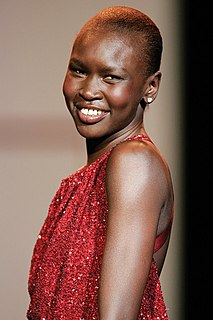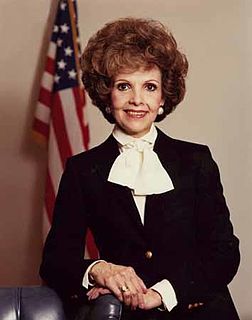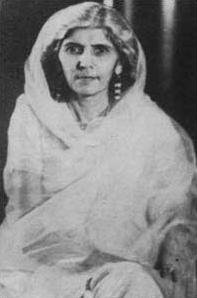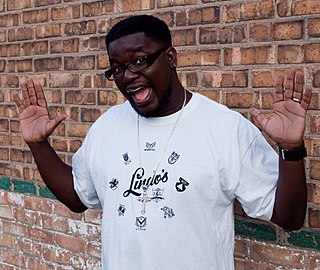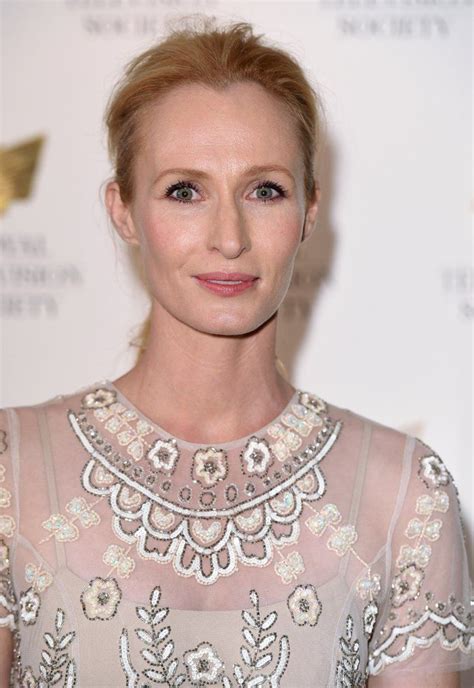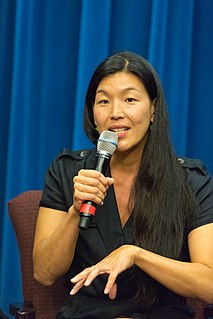A Quote by Rebecca Hamilton
What's really interesting, though, is that some people in the Messirya are starting to see Darfuri rebels - so non-Arab, [from the] Justice and Equality Movement - have moved over into Southern Kordofan, which is supposed to be a Messirya stronghold, and started recruiting Messirya to go and fight against the Khartoum government in Darfur. Just another example of how everything in Sudan is interlinked.
Related Quotes
I would like to get out to the region in the Caspian sea. I would like to go there. I would like to get to Darfur. I would like to get to Khartoum in Northern Sudan. I would like to get to Zimbabwe. I would like to go back to North Korea, if I could. I would like to go to Yemen. I would like to get to Kashmir. Most of those destinations I will get to.
I grew up in Zimbabwe in Southern Africa, and I moved to London when I was 17. And I started commuting and, actually, to go to college. And I used to really enjoy that part of my journey where the - it was actually a Tube train, but it was over ground, and it went right past the backs of people's houses, and I could actually see right in.
The movement of Pakistan which the Quaid-e-Azam launched was ethical in inspiration and ideological in content. The story of this movement is a story of the ideals of equality, fraternity and social and economic justice struggling against the forces of domination, exploitation, intolerance and tyranny.
Some people think that Southern hip-hop doesn't have any depth. They think it's just noise, all about people having a good time in the club. And some of it doesn't have a lot of depth, it's true, but some does. I wanted to work against that stereotype. These are verses by Southern artists who are really wrestling with what it means to be here, young black men who are trying to figure out how to live in the South. So I wanted the epigraphs in my novels to reflect that.
It's great to have a job and then go to another one, and have another one to go to after that. It doesn't always happen; you might be waiting a few months. But I've had some interesting roles, and worked with some great people. And it has been a really interesting mix between theatre television and film.
I think we really need a movement to drive how popular culture understands the issues that feminists care about. When I think about the LGBT movement for example, they have had a really intentional strategy to try to change images and representation of LGBT people in the media and the culture. It really moved the dial politically. That's what is needed in the women's movement - a strategy that can drive awareness and culture change.
I try not to cover Sudan from afar. I feel really uncomfortable writing about Sudan when I'm not there. It always looks different. When you're outside Sudan it's easy to lose sight of how much of what happens is driven by local politics. And when you're in America in particular, there's this sense that what D.C. has to say is the only thing that counts. Unsurprisingly people in Sudan don't feel the same way.
In my fight against terrorism, to me, the biggest terrorist is Obama in the United States of America. For me, I'm trying to fight the terrorism that's actually causing the other forms of terrorism. The root cause of the terrorism is the stuff that you as a government allow to happen and the foreign policies that we have in place in different countries that inspire people to become terrorists. And it's easy for us because it's really just some oil, which we can really get on our own.
In the country field, we’re brought up in spiritual homes, we’re taught to “judge not lest you be judged,” and it’s always been a mystery to me how people jump all over things just to criticize, condemn and judge other people when that is so un-Christian – and they claim to be good Christians! We’re supposed to love one another. We’re supposed to accept and love one another. Whether we do or not, that’s a different story. But that’s what we’re supposed to do.

